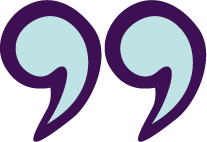Making a complaint is a formal step you can take if you are not satisfied with how your concerns have been resolved by the school.
When should I consider making a complaint?
You have the right to make a complaint about your child’s education. This could be because your concerns have not been resolved to your satisfaction, or because of a more serious incident involving your child at school. Schools and education providers must comply with the Disability Standards for Education and relevant laws.
How to prepare
Decide what outcome you would like and be clear about this in your communications with the school. You can choose to have an advocate or support person with you at any meetings to talk about your concerns or to make a complaint. All schools must have policies and procedures in place for handling complaints. Find out what these are and follow the school’s process to make your complaint.
How complaints can be resolved
A complaint is resolved if you and the school and/or the Department of Education (DOE) agree on a solution. This might include one or more actions to be undertaken by the school, DOE staff, or by you or your child. Agreed actions should be carried out as soon as possible.
Agreed actions might include:
- The school explains what happened and why
- You and the school acknowledge each other’s perspectives on something that happened, and agree on how similar issues will be handled in future
- Professional development is provided for staff in how to respond to complaints and/or to improve knowledge and skills in a particular area
- The school expresses: regret for its actions, an apology for its actions, or an admission of fault for its actions
- The school changes a decision that it made
- The school changes a policy, procedure or practice
- Agreement on what constitutes acceptable behaviour by a student, staff member, parent or carer or other member of the school community
- An undertaking that unacceptable behaviour will change from a student, staff member, parent or carer or other member of the school community
- The school waives debts relating to school fees and payments and/or issues a refund for payments
- The school provides or funds counselling or other support for you and/or your child
If your complaint is dismissed
There are limited circumstances in which a complaint may be dismissed without being investigated. This can happen where a complaint has already been investigated by the school or by DOE, and there is no further information available to warrant reinvestigation.
A complaint may also be dismissed without investigation if it is considered vexatious. This means that there is no basis at all to the complaint, and that it was made to cause embarrassment to someone, or to create conflict.
Making a complaint about a Victorian government school
- Speak to your school first. If you have a concern about a principal and do not want to raise it directly with them, you can contact your closest DOE regional office.
- If you are not satisfied with the outcome, you can contact your DOE regional office.
- If you are still not satisfied with the outcome, you can contact the DOE central office. The central office can also refer eligible complaints to the Independent Office for School Dispute Resolution.
Making a complaint about a Catholic or Independent school
Information about how to make a complaint about Catholic schools is available from the Catholic Education Commission of Victoria. Information about how to make a complaint about Independent schools is available from Independent Schools Victoria.
Taking your complaint further
If you’re not satisfied with the response from DOE or your Catholic or Independent school, you can take your complaint further depending on the issue:
Victorian Disability Worker Commission (VDWC)
If you have a concern about the standard of work, skills or safety of an Education Support Officer (Aide) who is teaching or supporting your child with disability at school you can make a complaint to the Victorian Disability Worker Commission (VDWC).
The VDWC is an independent agency that sets out a Code of Conduct with minimum expectations for all workers supporting people with disability. It works to enforce the Disability Service Safeguards Act 2018 (Vic) and has the power to investigate and ban workers who put people’s safety at risk.
Commission for Children and Young People Reportable Conduct Scheme
If you have a reasonable belief your child has been abused you can make a report to the Commission for Children and Young People. Reportable conduct includes: sexual abuse, sexual misconduct, physical violence, behaviour that causes significant emotional or psychological harm or significant neglect.
Victorian Equal Opportunity and Human Rights Commission (VEOHRC)
If you think your child has experienced discrimination, you can make a complaint to the Victorian Equal Opportunity and Human Rights Commission (VEOHRC). The Commission provides a free dispute resolution service to help you resolve your complaint and understand your rights.
Independent Office for School Dispute Resolution
If you have a complaint about a Victorian government school that cannot be resolved by the school or DOE, you can contact the Independent Office for School Dispute Resolution. The Office works with parents, students and the school community using an independent and fair process.
Victorian Ombudsman
If your complaint still cannot be resolved, you can make a complaint to the Victorian Ombudsman. You will need to show that you have tried to resolve the issue using the school or education provider’s complaints procedures before contacting the Ombudsman.
Useful links
Contact the Department of Education
Catholic Education Commission of Victoria
Independent Schools Victoria
Victorian Disability Worker Commission – Complaints and notifications
Commission for Children and Young People Reportable Conduct Scheme
Independent Office for School Dispute Resolution
Victorian Ombudsman






